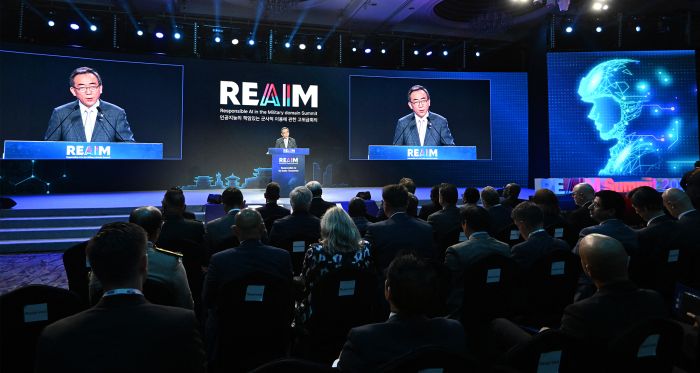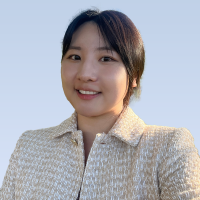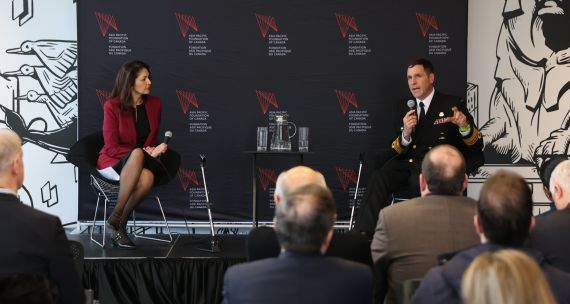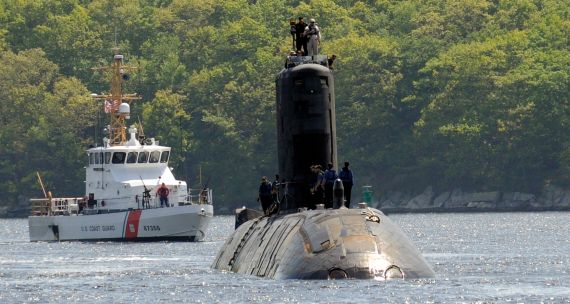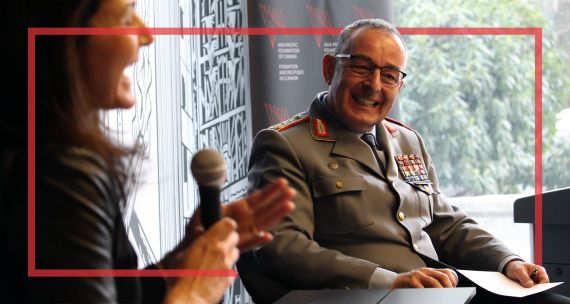The Takeaway
The second Responsible Artificial Intelligence in the Military Domain (REAIM) Summit was convened in Seoul on September 9-10, 2024, and was co-hosted by Kenya, the Netherlands, Singapore, and the U.K. Representatives from 96 countries gathered — along with delegates from business, academia, and civil society organizations — to develop global guidelines for the responsible development and use of artificial intelligence (AI) across military domains.
The summit concluded with 61 countries, including Canada and the U.S., signing a ‘blueprint’ for the ethical and human-centric use of AI in the military. However, 30 countries at the summit, including China, did not endorse the document. This division highlights the difficulty in building consensus on regulating AI, a rapidly evolving field, especially one subject to the high-stakes competition for dominance between the U.S. and China.
In Brief
- At the summit, South Korean defence minister Kim Yong-hyun described AI as a "double-edged sword." On the one hand, it has the potential to boost military capabilities such as unmanned combat, increase the accuracy of targeting systems, and accelerate the pace of operations. On the other hand, it poses numerous risks and challenges. For example, a malfunction of an AI application could make an unintended outbreak of conflict more likely, including one that could lead to large-scale casualties from weapons of mass destruction.
- The first summit on the governance of military AI was held in the Netherlands in 2023. The event led to a Call to Action, signed by both the U.S. and China, signalling a desire to promote awareness and co-operation on the issue. The summit also led to the establishment of the Global Commission on REAIM, which was founded to advance global norms and policy coherence on military uses of AI. This commission comprises pre-eminent AI scholars and seeks to support the development of global norms and policy coherence.
- The Blueprint for Action from this year’s South Korea summit focused on the technical, ethical, and operational aspects of military AI, emphasizing the importance of compliance with international law, human oversight, and risk assessment. China opted out, likely for strategic reasons. Russia was excluded from the event altogether due to its February 2022 invasion of Ukraine. India and Israel attended the summit but also opted not to sign the blueprint.
- At the Summit’s Ministerial Roundtable, Canadian defence minister Bill Blair emphasized that his ministry launched Ottawa’s first-ever military AI strategy in March 2024, aiming to make the Canadian Armed Forces and Department of National Defence AI-enabled by 2030.
Implications
South Korea further solidified its position as a leader in global AI governance. South Korea — together with co-hosts Kenya, the Netherlands, Singapore, and the U.K. — was uniquely positioned to organize REAIM 2024.
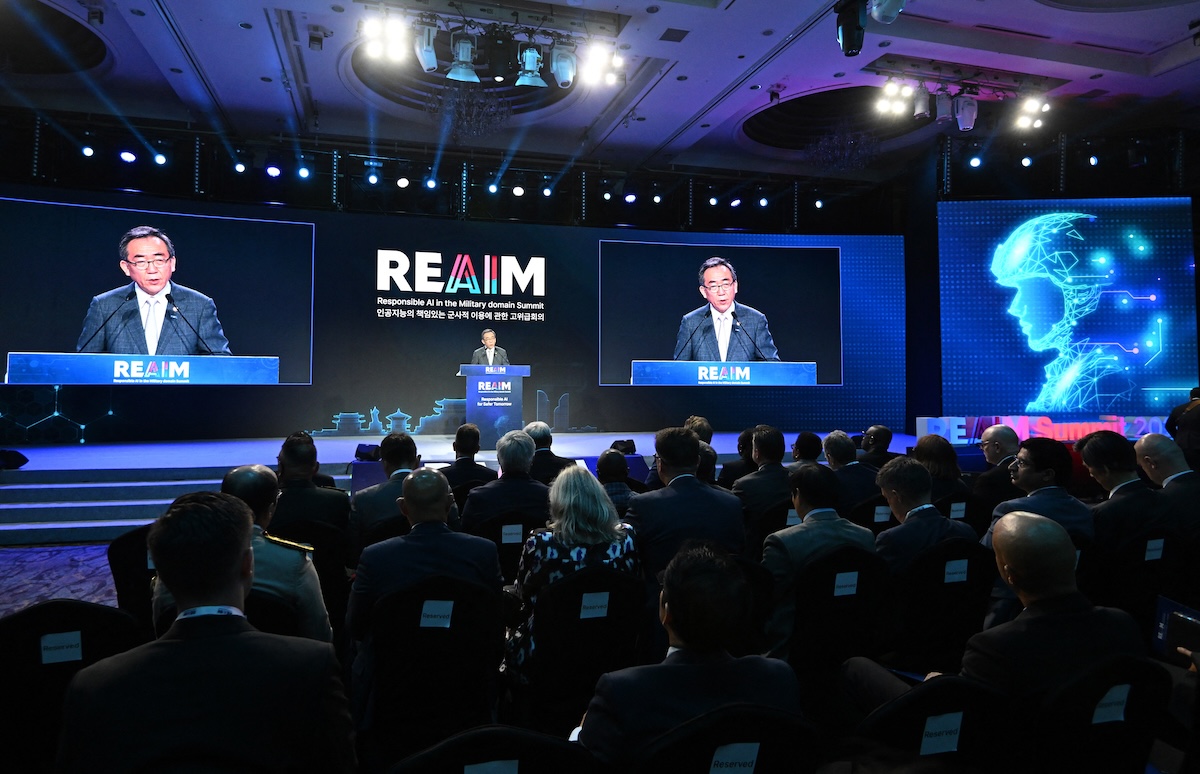
As a high-tech powerhouse, it produces AI-enabling high bandwidth memory chips, possesses its own generative AI models, and produces innovative defence materials that leverage this technology. Moreover, as a ‘global pivotal state,’ South Korea has led the global debate about AI in general by effectively hosting two additional AI-related summits in 2024.
China uses AI guidelines selectively, with an eye to bolstering its competitiveness and gaining the upper hand over the U.S. Some observers suspect that China’s reluctance to sign the blueprint agreed to at the summit stems from a desire to ensure that it can compete with the U.S. in developing and integrating AI into its military as quickly as possible. Despite massive AI investments by China, U.S. restrictions on advanced semiconductor technology have curtailed China’s ability to produce cutting-edge chips. Since semiconductors are a critical component of military AI systems, Beijing is cautious about endorsing frameworks that could hinder its goal of becoming a global leader in AI and military technology by 2030.
Moreover, Beijing may feel it is already playing a larger role in creating global AI norms. For example, at the ministerial roundtable, China emphasized that it had already launched the “Global Initiative for AI Governance” in October 2023. Earlier, on July 1, China introduced a resolution at the UN General Assembly — that was ultimately adopted — to strengthen international co-operation on AI capacity-building. This initiative reflects China’s preference for UN-led frameworks over agreements it perceives as being dominated by the West.
What’s Next
1. Maintaining momentum
The South Korean government plans to discuss the ‘blueprint’ at the current session of the UN General Assembly, which concludes in November, in hopes of motivating other countries to participate in these discussions to shape global AI norms. Future discussions could widen in scope to include arms control of AI, which focuses on regulating AI’s use in specific military applications.
2. Canada could enhance AI capacity with semiconductors
Canada is already enhancing AI capacity through partnerships, such as the one between Samsung and Tenstorrent, a Canadian AI chip design company. Combining South Korea’s strength in semiconductor manufacturing and Canada’s strong research base and AI talent pool could drive innovation and economic benefits for both countries.
3. Alignment with NATO will need to deepen
On September 26, Canada and France — both NATO members — issued a Call to Action in Ottawa for a responsible approach to AI, focusing on safety, transparency, and human-centred development. In 2025, Canada will chair the G7, while France will host the AI Action Summit, giving both nations an opportunity to demonstrate their commitment to advancing global AI governance through the Global Partnership for Artificial Intelligence.
• Edited by Vina Nadjibulla, Vice-President Research & Strategy, Erin Williams, Senior Program Manager, and Ted Fraser, Senior Editor, APF Canada.
